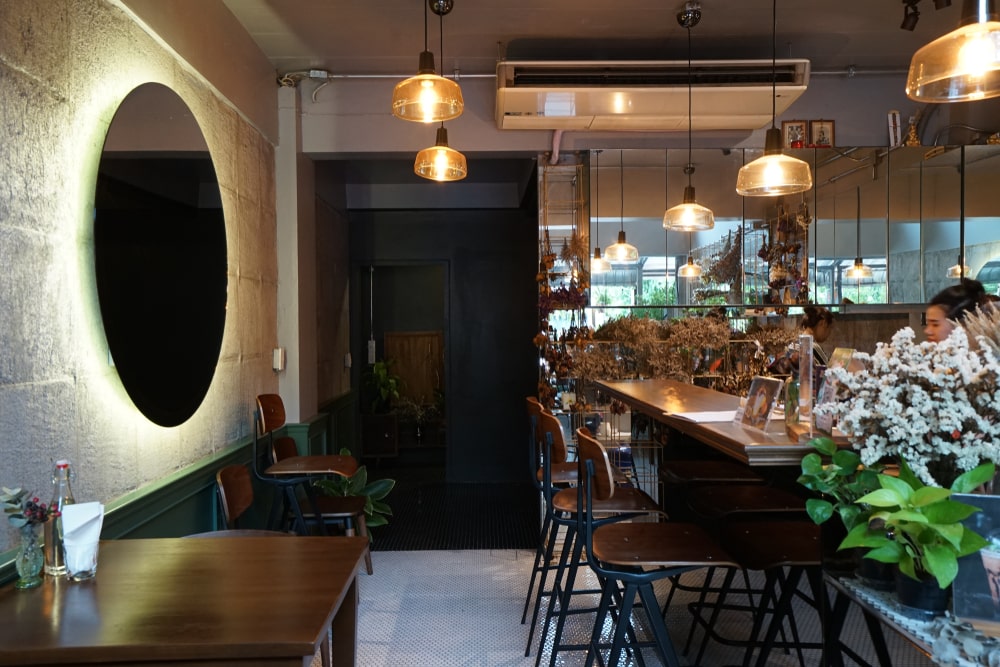Running a business in Perth means dealing with some pretty intense weather. From scorching summers to surprisingly chilly winters, keeping your commercial space comfortable is crucial for productivity, customer satisfaction, and overall well-being. That’s where reliable commercial air conditioning solutions come into play. But navigating the world of commercial AC installation can feel like a daunting task. What size system do you need? What are the different types available? And how do you ensure a smooth, efficient installation process? This guide will walk you through everything you need to know, ensuring your business stays cool and comfortable year-round.
Think of your commercial air conditioning system as the unsung hero of your business. It quietly works in the background, maintaining a pleasant environment that allows your employees to focus and your customers to linger. A poorly installed or inadequate system, on the other hand, can lead to discomfort, decreased productivity, and even health issues. So, let’s dive into the nitty-gritty of commercial air conditioning installation and equip you with the knowledge you need to make informed decisions.
Understanding Your Commercial Air Conditioning Needs
Before you even start browsing different AC units, it’s essential to assess your specific requirements. What works for a small office won’t necessarily work for a large warehouse or a multi-story building. Here are some key factors to consider:
Size and Layout of Your Space
This is the most obvious factor. The square footage of your commercial space directly impacts the size and capacity of the air conditioning system you’ll need. But it’s not just about square footage. The layout of your space also matters. Open-plan offices might require different solutions than spaces with multiple enclosed rooms. Also, consider the height of your ceilings. Higher ceilings mean a larger volume of air to cool, which will influence the system’s capacity.
Occupancy Levels
How many people typically occupy your commercial space? The more people present, the more heat is generated. A crowded office will require a more powerful AC system than a sparsely populated one. Consider peak occupancy times when making your calculations.
Heat-Generating Equipment
Do you have a server room packed with heat-generating equipment? Or perhaps a commercial kitchen with ovens and stoves constantly running? These sources of heat will significantly impact your air conditioning needs. You may need to consider supplementary cooling solutions for these specific areas.
Insulation and Building Materials
The quality of your building’s insulation plays a crucial role in maintaining a comfortable temperature. Poorly insulated buildings will lose heat in the winter and gain heat in the summer, placing a greater burden on your air conditioning system. The type of building materials used also matters. Concrete buildings, for example, tend to retain heat more than those constructed with lightweight materials.
Types of Commercial Air Conditioning Systems
Now that you have a better understanding of your needs, let’s explore the different types of commercial air conditioning systems available. Each type has its own advantages and disadvantages, so it’s important to choose the one that best suits your specific requirements and budget.
Split Systems
Split systems are a popular choice for smaller commercial spaces, such as offices and retail shops. They consist of an indoor unit and an outdoor unit. The indoor unit blows cool air into the room, while the outdoor unit houses the compressor and condenser. Split systems are relatively easy to install and maintain, and they offer good energy efficiency.
Ducted Systems
Ducted systems are ideal for larger commercial spaces with multiple rooms or zones. They consist of a central unit that distributes cool air through a network of ducts. Ducted systems offer consistent temperature control throughout the entire space and can be easily zoned to allow for individual temperature adjustments in different areas.
VRF (Variable Refrigerant Flow) Systems
VRF systems are a more advanced type of ducted system that offers even greater energy efficiency and flexibility. They allow for individual temperature control in each zone and can simultaneously heat and cool different areas of the building. VRF systems are a great option for businesses that require precise temperature control and want to minimize their energy consumption.
Packaged Units
Packaged units are self-contained systems that house all the components in a single unit. They are typically installed on the roof or outside the building and are suitable for a variety of commercial applications. Packaged units are relatively easy to install and maintain, and they offer good cooling capacity.
The Commercial Air Conditioning Installation Process
Once you’ve chosen the right type of system, it’s time to move on to the installation process. This is where it’s crucial to enlist the help of experienced professionals to ensure a smooth and efficient installation.
Professional Assessment and Design
A qualified HVAC Perth contractor will conduct a thorough assessment of your commercial space to determine the optimal system size and design. They will take into account all the factors we discussed earlier, such as size, layout, occupancy levels, and heat-generating equipment. They will also design a system that meets your specific needs and budget.
System Installation
The installation process typically involves mounting the indoor and outdoor units, connecting the refrigerant lines and electrical wiring, and installing the ductwork (if applicable). The contractor will ensure that all components are properly installed and that the system is functioning correctly. This often involves the expertise of experienced commercial electricians to ensure all electrical connections are safe and compliant.
Testing and Commissioning
After the installation is complete, the contractor will thoroughly test the system to ensure that it’s operating at peak performance. They will also commission the system, which involves setting the controls and adjusting the settings to optimize energy efficiency and comfort. They will also provide you with training on how to operate the system and maintain it properly.
Maintaining Your Commercial Air Conditioning System
Proper maintenance is essential for ensuring the longevity and efficiency of your commercial air conditioning system. Regular maintenance can prevent costly repairs and extend the lifespan of your system. Here are some key maintenance tasks:
Regular Filter Changes
Dirty air filters restrict airflow and reduce the efficiency of your system. They can also lead to the buildup of dust and allergens, which can negatively impact indoor air quality. It’s recommended to change your air filters every one to three months, depending on the air quality and usage.
Coil Cleaning
The evaporator and condenser coils can accumulate dirt and debris over time, which can reduce their ability to transfer heat. Regular coil cleaning will help maintain the efficiency of your system. A professional technician can clean the coils using specialised equipment and cleaning solutions.
Duct Cleaning
If you have a ducted system, it’s important to have the ducts cleaned periodically to remove dust, allergens, and other contaminants. Dirty ducts can negatively impact indoor air quality and reduce the efficiency of your system. A professional duct cleaning service can thoroughly clean your ducts using specialised equipment.
Professional Inspections
It’s recommended to schedule regular professional inspections of your commercial air conditioning system. A qualified technician can identify potential problems early on and perform preventative maintenance to avoid costly repairs. They can also check the refrigerant levels, inspect the electrical components, and ensure that the system is operating safely and efficiently.
Choosing the Right Commercial Air Conditioning Contractor
Selecting the right contractor is crucial for a successful commercial air conditioning installation. Here are some factors to consider when choosing a contractor:
Experience and Expertise
Choose a contractor with extensive experience in installing and maintaining commercial air conditioning systems. Look for a contractor with a proven track record of successful installations and satisfied customers.
Licensing and Insurance
Ensure that the contractor is properly licensed and insured. This will protect you from liability in case of accidents or damage during the installation process.
Reputation and Reviews
Check the contractor’s reputation by reading online reviews and testimonials. Ask for references from previous clients and contact them to inquire about their experience with the contractor.
Warranty and Service Agreements
Choose a contractor who offers a comprehensive warranty on their workmanship and the equipment they install. Also, inquire about service agreements that provide ongoing maintenance and support.
Investing in Comfort and Efficiency
Investing in a properly sized and installed commercial air conditioning system is an investment in the comfort, productivity, and well-being of your employees and customers. By understanding your needs, choosing the right type of system, and enlisting the help of experienced professionals, you can ensure that your business stays cool and comfortable year-round. Don’t underestimate the importance of regular maintenance to keep your system running efficiently and prevent costly repairs. With the right approach, your investment in commercial air conditioning will pay dividends for years to come.



